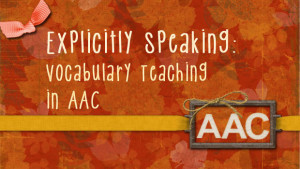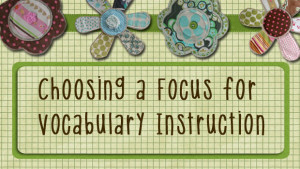Explicitly Speaking: Vocabulary Teaching in AAC

An essential part of the model we shared for AAC semantic intervention is Step 2, teaching the new words with explicit instruction activities. In our posts, explicit instruction refers to the process of designing and using carefully planned sequence of empirically-supported teaching activities. Though focused on reading, not vocabulary, development, this PowerPoint presentation by Dr. Anita Archer gives an excellent overview of the characteristics of explicit instruction. In our initial teaching of new words, we to be sure that the learners have frequent opportunities to respond: Active participation is critical at this point. We have to give the learner a lot of opportunities to say the word (e.g.,“resume”) and tell about it (e.g., “keep going,” “start again and not stop,” “verb”, etc.). We want to elicit a lot of responses so that we can monitor their performance. That allows us to provide feedback that is affirmative when the learners respond... [Read More...]
Filed under: PrAACtical Thinking
Tagged With: implementation ideas, new word learning, semantics, teaching, teaching activities, vocabulary
